Home>diy>Building & Construction>How To Be A Construction Site Supervisor
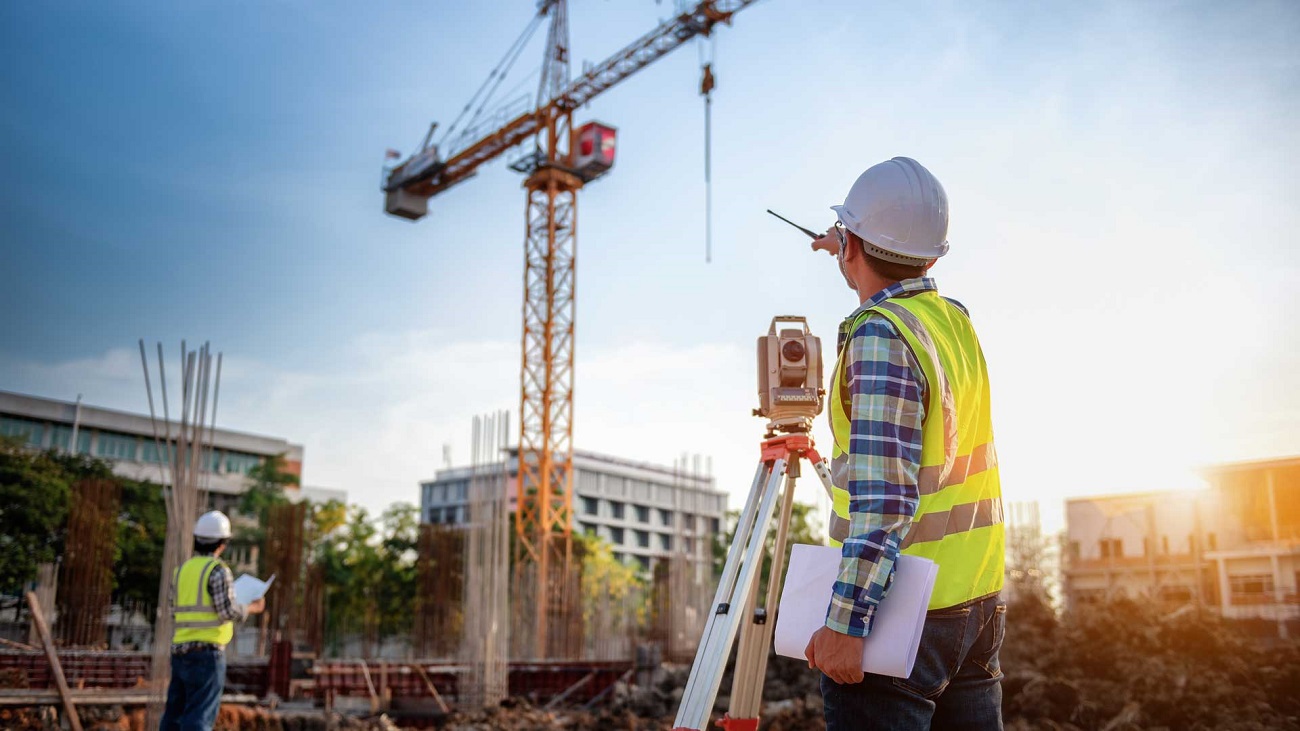

Building & Construction
How To Be A Construction Site Supervisor
Modified: May 6, 2024
Learn the essential steps to become a skilled construction site supervisor in the building construction industry. Gain the expertise and knowledge needed to effectively manage and oversee projects.
(Many of the links in this article redirect to a specific reviewed product. Your purchase of these products through affiliate links helps to generate commission for Storables.com, at no extra cost. Learn more)
Introduction
Being a construction site supervisor is a demanding yet rewarding role that requires a unique set of qualifications, knowledge, and skills. Site supervisors play a crucial role in overseeing construction projects, ensuring that they are completed safely, efficiently, and within budget.
As a construction site supervisor, you will be responsible for managing the day-to-day operations at the construction site, coordinating with various teams, and ensuring compliance with regulations and safety protocols. This role requires a deep understanding of building construction, strong leadership capabilities, and effective communication skills.
In this article, we will explore the qualifications and education required to become a construction site supervisor, the knowledge and skills you need to excel in this role, and the responsibilities you will have. We will also discuss the importance of managing site operations, ensuring safety and compliance, supervising and leading the construction team, and the communication and problem-solving skills necessary for success. Additionally, we will cover the essential tools and strategies you can utilize as a construction site supervisor to streamline operations and overcome challenges.
Whether you are considering a career in construction site supervision or are already in the field and looking to enhance your skills, this article will provide valuable insights and guidance to help you succeed.
Key Takeaways:
- Becoming a construction site supervisor requires a mix of education, practical experience, and certifications. Strong leadership, communication, and safety skills are essential for success in this demanding yet rewarding role.
- A construction site supervisor’s toolkit includes technical knowledge, communication tools, project management software, safety equipment, and strategies for quality assurance and risk management. Continuous learning and professional development are crucial for staying updated with industry advancements.
Read more: What Is A Construction Site
Qualifications and Education
To become a construction site supervisor, you will need a combination of education, experience, and certain qualifications. While specific requirements may vary depending on the location and employer, there are some common qualifications and educational paths that can help you pursue a career in this field.
First and foremost, a high school diploma or equivalent is typically required to enter the construction industry. However, to advance to a supervisory role, obtaining further education is highly recommended. Many aspiring site supervisors pursue a post-secondary degree or certificate in construction management, civil engineering, or a related field. These programs provide a solid foundation in construction principles, project management, and leadership skills.
In addition to formal education, gaining practical experience in the construction industry is essential. Many construction site supervisors start as construction workers or apprentices, learning the trade from the ground up. This hands-on experience helps develop a deep understanding of construction processes, safety protocols, and the challenges faced on-site. It also provides an opportunity to network and establish relationships within the industry.
In terms of certifications, there are several options that can enhance your qualifications as a construction site supervisor. The most recognized certification in the construction industry is the Construction Site Supervisor Certification (CSSC) offered by the Construction Industry Institute (CII). This certification validates your knowledge and competence in overseeing construction projects and managing safety protocols.
Other relevant certifications include the Occupational Safety and Health Administration (OSHA) certifications, such as the OSHA 30-hour Construction Industry Outreach Training Program. This certification demonstrates your understanding of workplace safety regulations and your commitment to maintaining a safe construction site.
Additionally, becoming a member of professional organizations, such as the Construction Management Association of America (CMAA) or the American Institute of Constructors (AIC), can provide access to valuable resources, networking opportunities, and professional development programs.
To stay updated with industry trends and advancements, continuous learning and professional development are crucial. Attending workshops, conferences, and seminars related to construction management, project planning, and leadership can help you sharpen your skills and expand your knowledge.
Remember, while qualifications and education provide a solid foundation, practical experience, leadership skills, and a strong work ethic are equally important in becoming a successful construction site supervisor. Every project is unique, and the ability to adapt, problem-solve, and communicate effectively is critical in this role.
Knowledge and Skills Required
Being a construction site supervisor requires a diverse range of knowledge and skills to effectively manage and oversee construction projects. While technical knowledge of building construction is essential, there are also other key skills and competencies that are crucial for success in this role.
First and foremost, a construction site supervisor must have a deep understanding of building construction processes, materials, and techniques. This includes knowledge of architectural drawings, blueprints, and specifications, as well as an understanding of different construction methods and structural elements. This knowledge allows supervisors to accurately interpret plans, identify potential issues or inconsistencies, and ensure that construction work is carried out to industry standards.
Strong leadership and management skills are also vital for a construction site supervisor. As a supervisor, you will be responsible for leading and motivating a team of construction workers, subcontractors, and other stakeholders. Effective leadership involves setting clear expectations, providing guidance and support, and fostering a positive and collaborative work environment. Additionally, supervisors must have strong decision-making skills and the ability to navigate complex situations and solve problems under pressure.
Communication skills are another critical aspect of being a construction site supervisor. You must be able to effectively communicate with various stakeholders, including project managers, architects, engineers, subcontractors, and construction workers. Clear and concise communication ensures that everyone is on the same page and can help prevent errors or misunderstandings. Additionally, good communication skills are essential for delegating tasks, providing feedback, and resolving conflicts or issues that may arise on the construction site.
Construction sites can be hazardous environments, so a strong emphasis on safety is crucial. A construction site supervisor must have a comprehensive understanding of safety regulations, protocols, and procedures to ensure the well-being of all workers on the project. This includes conducting regular safety inspections, promoting a safety culture, and addressing any safety concerns promptly. Being proactive in identifying and mitigating potential hazards is an important responsibility for a site supervisor.
Effective time and resource management is also essential for a construction site supervisor. You will be responsible for coordinating various tasks, scheduling deliveries, and managing budgets and resources efficiently. This requires strong organizational skills, attention to detail, and the ability to prioritize and multitask effectively. Supervisors must also have a good understanding of cost control and the ability to monitor project progress and make adjustments as necessary to meet deadlines and stay within budget.
Lastly, as a construction site supervisor, you must stay updated with industry trends, advancements, and regulations. This involves continuously learning and seeking professional development opportunities to enhance your knowledge and skills. Being able to adapt to changing technologies and construction practices is crucial for staying competitive in the industry.
In summary, a construction site supervisor must possess a combination of technical knowledge, leadership and management skills, effective communication abilities, a strong focus on safety, and excellent time and resource management capabilities. These skills, together with a passion for construction and a commitment to quality, will contribute to success in this demanding role.
Responsibilities of a Construction Site Supervisor
As a construction site supervisor, you will have a wide range of responsibilities that are crucial to the successful completion of a construction project. Your role is to oversee and manage the day-to-day operations on the construction site, ensuring that work progresses smoothly, safely, and according to plans and specifications. Here are some of the key responsibilities you can expect:
- Coordination and Planning: A construction site supervisor is responsible for coordinating various activities and tasks on-site. This includes scheduling and assigning work to construction workers, subcontractors, and suppliers, ensuring that materials and equipment are available when needed, and coordinating with project managers, architects, and engineers to keep the project on track.
- Monitoring and Inspections: It is the supervisor’s duty to regularly monitor and inspect the construction site to ensure that work is being carried out according to plans, specifications, and safety regulations. This involves conducting quality inspections, checking for compliance with building codes and safety standards, and addressing any issues or deviations that may arise.
- Quality Control: Maintaining quality standards is a crucial responsibility of a construction site supervisor. This includes ensuring that construction work meets industry standards and adheres to the project’s specifications. It involves monitoring workmanship, addressing any quality concerns, and working closely with subcontractors and suppliers to maintain high-quality standards throughout the project.
- Health and Safety: Ensuring a safe working environment is of utmost importance. A construction site supervisor is responsible for implementing and enforcing safety protocols and procedures, conducting regular safety meetings and trainings, and promoting a culture of safety among all workers on-site. They must identify hazards, implement safety measures, and respond promptly to any incidents or near-misses.
- Documentation and Reporting: Construction site supervisors must maintain accurate and up-to-date documentation related to the project. This includes keeping records of daily activities, materials delivered and used, work progress, and any changes or issues encountered. They are also responsible for preparing regular progress reports and sharing updates with project stakeholders.
- Problem-solving and Decision Making: Construction projects often present unexpected challenges and changes. A site supervisor must possess excellent problem-solving skills and the ability to make informed decisions quickly. They must evaluate situations, assess risks, and find solutions that maintain project timelines and quality while considering budgetary and safety constraints.
- Team Supervision: As a site supervisor, you will be responsible for leading and managing a team of construction workers, subcontractors, and suppliers. This includes assigning tasks, providing guidance and training when necessary, and ensuring that the team works together effectively to achieve project goals. Effective communication, conflict resolution, and motivational skills are essential in supervising and leading a diverse team on-site.
These responsibilities require strong leadership, effective communication, problem-solving abilities, and a deep understanding of construction processes and safety protocols. As a construction site supervisor, your role is pivotal in ensuring that the project is completed successfully, on time, and in accordance with quality and safety standards.
Managing Site Operations
Managing site operations is a critical aspect of a construction site supervisor’s role. It involves overseeing and coordinating various activities to ensure that the project progresses efficiently and according to plans. Here are the key areas that a site supervisor is responsible for managing:
- Scheduling: A construction site supervisor plays a crucial role in creating and maintaining the project schedule. This includes determining the sequence of work, setting deadlines, and establishing milestones for the completion of different phases of the project. The supervisor must coordinate with various teams, subcontractors, and suppliers to ensure that work is scheduled effectively and any delays or issues are promptly addressed.
- Resource Allocation: Allocating resources, such as labor, materials, and equipment, is another important aspect of managing site operations. The supervisor must ensure that the necessary resources are available on-site as needed and that they are used efficiently. This involves coordinating with procurement teams, monitoring resource usage, and making adjustments as necessary to avoid delays or wastage.
- Progress Monitoring: A site supervisor is responsible for monitoring the progress of work on-site. This includes regularly reviewing work plans, tracking actual progress against the schedule, and identifying any deviations or bottlenecks. By closely monitoring progress, the supervisor can identify potential issues early on and take corrective actions to keep the project on track.
- Change Management: Construction projects often encounter changes, whether it’s design modifications, scope changes, or unforeseen circumstances. The supervisor must effectively manage these changes by assessing their impact on the project and determining appropriate courses of action. This involves communicating with stakeholders, coordinating with the project management team, and making adjustments to the schedule and resource allocation as needed.
- Quality Assurance: Ensuring that construction work meets quality standards is an integral part of managing site operations. The supervisor must establish quality control processes and implement regular inspections to ensure that workmanship, materials, and installations comply with specifications and industry standards. By monitoring and addressing quality concerns promptly, the supervisor can maintain high standards of work throughout the project.
- Permitting and Regulatory Compliance: Construction projects are subject to various permits and regulatory requirements. The site supervisor is responsible for ensuring that all necessary permits are obtained, and that work is carried out in compliance with building codes, safety regulations, and environmental guidelines. This includes coordinating inspections, addressing any compliance issues, and maintaining documentation to demonstrate regulatory compliance.
Effective management of site operations requires strong organizational skills, attention to detail, and the ability to prioritize tasks. The site supervisor must have a comprehensive understanding of the project plans and specifications, as well as the ability to coordinate and communicate effectively with various project stakeholders. By successfully managing site operations, the supervisor can ensure that the construction project progresses smoothly and efficiently towards its successful completion.
Read more: Who Runs A Construction Site
Ensuring Safety and Compliance
Ensuring safety and compliance is a top priority for a construction site supervisor. Construction sites can be inherently hazardous environments, and the supervisor plays a critical role in creating a safe workplace for all workers on-site. Here are the key responsibilities of a site supervisor in ensuring safety and compliance:
- Establishing Safety Protocols: The site supervisor is responsible for developing and implementing safety protocols and procedures that align with industry standards and regulatory requirements. This includes creating safety plans, conducting risk assessments, and identifying potential hazards on the construction site. By establishing a comprehensive safety framework, the supervisor sets the foundation for a safe work environment.
- Training and Education: The supervisor must ensure that all workers on-site receive proper training and education on safety protocols, equipment usage, and emergency procedures. This may involve conducting safety training sessions, organizing workshops, and providing guidance on the proper use of personal protective equipment (PPE). Ongoing safety education helps promote a culture of safety and reduces the risk of accidents or injuries.
- Regular Inspections: The site supervisor is responsible for conducting regular inspections to identify potential safety hazards. This includes inspecting equipment, scaffolding, and other work areas to ensure that they are in good working condition and comply with safety regulations. Regular inspections help identify and address safety issues early on, mitigating the risk of accidents or injuries.
- Enforcing Safety Policies: The supervisor must proactively enforce safety policies and hold all workers accountable for following them. This includes monitoring work practices, identifying and addressing unsafe behaviors, and providing corrective guidance. By consistently enforcing safety policies and taking swift action when necessary, the supervisor fosters a safe and responsible work culture.
- Responding to Incidents: In the event of an accident, injury, or near-miss, the site supervisor must respond promptly and effectively. This includes providing first aid, reporting incidents, and conducting investigations to determine the root causes and prevent similar incidents in the future. By responding to incidents in a timely and professional manner, the supervisor demonstrates a commitment to worker safety and well-being.
- Regulatory Compliance: Construction projects are subject to various regulatory requirements, such as building codes, safety standards, and environmental regulations. The site supervisor must ensure that the project complies with all relevant regulations and permits. This includes coordinating inspections, keeping documentation up-to-date, and addressing any compliance issues promptly to avoid penalties or delays.
By prioritizing safety and compliance, the site supervisor not only protects the well-being of the workers but also safeguards the overall success of the construction project. By establishing and enforcing safety protocols, providing training and education, and ensuring regulatory compliance, the supervisor creates a safe and secure work environment where workers can perform their duties without unnecessary risk.
Supervising and Leading the Construction Team
As a construction site supervisor, one of your key responsibilities is supervising and leading the construction team. Effective leadership and management skills are vital in ensuring that the team works together efficiently and produces high-quality work. Here are some important aspects of supervising and leading the construction team:
- Assigning and Delegating Tasks: The site supervisor is responsible for assigning tasks and delegating responsibilities to members of the construction team. This involves assessing individual skills and capabilities and matching them with appropriate tasks. By distributing work effectively, the supervisor can optimize team productivity and ensure that each team member contributes to the project’s overall success.
- Providing Guidance and Support: A good site supervisor provides guidance to team members and offers support when needed. This includes clarifying expectations, providing instructions, and giving feedback on performance. By being approachable and supportive, the supervisor fosters a positive work environment and encourages open communication.
- Monitoring Performance: The supervisor must monitor the performance of the construction team to ensure that work is being carried out effectively and according to the project’s requirements. This involves regularly reviewing progress, providing constructive feedback, and addressing any performance issues or deviations from the plans. By closely monitoring performance, the supervisor can identify areas for improvement and take corrective actions to maintain productivity and quality standards.
- Promoting Team Collaboration: Collaboration and teamwork are crucial for successful construction projects. The site supervisor plays a key role in promoting collaboration among team members by fostering a sense of unity and shared goals. This can be achieved through regular team meetings, encouraging open communication, and providing opportunities for team-building activities. By promoting a collaborative environment, the supervisor enhances teamwork and productivity.
- Conflict Resolution: Construction projects can sometimes encounter conflicts or disagreements among team members. The site supervisor must be skilled in resolving conflicts promptly and effectively to maintain a harmonious work environment. This involves listening to all sides, mediating discussions, and finding mutually acceptable resolutions. Resolving conflicts in a timely manner helps maintain team morale and keeps the project on track.
- Recognizing and Motivating the Team: Recognizing the hard work and achievements of the construction team is essential for maintaining job satisfaction and motivation. The site supervisor should acknowledge and appreciate the efforts of individual team members and the team as a whole. By regularly providing positive reinforcement and incentives, the supervisor boosts morale and encourages a high level of performance.
- Building Relationships: A construction site supervisor must build positive relationships with team members, subcontractors, suppliers, and other project stakeholders. Good communication skills and relationship building help foster a collaborative and productive work environment. Building strong relationships promotes effective teamwork, problem-solving, and a shared commitment to the project’s success.
Effective supervision and leadership of the construction team are essential for ensuring that work is carried out efficiently, safely, and to the required quality standards. By providing guidance, monitoring performance, promoting collaboration, resolving conflicts, recognizing and motivating the team, and building positive relationships, the site supervisor can lead the construction team to success.
Always prioritize safety on the construction site. Conduct regular safety inspections, provide proper training, and enforce safety protocols to ensure a secure work environment for all workers.
Communication and Coordination
Effective communication and coordination are crucial skills for a construction site supervisor. Clear and efficient communication ensures that all stakeholders are on the same page, reduces the risk of errors or misunderstandings, and supports the smooth progression of the construction project. Here are key aspects of communication and coordination in the role of a construction site supervisor:
- Project Information Sharing: The site supervisor is responsible for effectively communicating project information to various stakeholders, including project managers, architects, engineers, subcontractors, and construction workers. This includes sharing project plans, schedules, specifications, and any updates or changes that may arise. By providing accurate and timely information, the supervisor helps all stakeholders understand their roles and responsibilities and stay informed throughout the project.
- Team Communication: Clear and consistent communication within the construction team is essential for effective teamwork and collaboration. The supervisor must facilitate regular team meetings, toolbox talks, or safety briefings to discuss project progress, address challenges, and provide instructions or feedback. By fostering open communication, the supervisor ensures that everyone is aware of project goals, timelines, and any changes or updates.
- Subcontractor and Supplier Coordination: Coordinating with subcontractors and suppliers is a crucial aspect of a construction site supervisor’s role. This involves ensuring that subcontractors and suppliers have the necessary information, materials, and access to the site to carry out their work effectively. The supervisor must communicate closely with them, provide clear instructions, and address any issues or concerns promptly to maintain a smooth workflow.
- Problem Solving and Issue Resolution: Effective communication plays a vital role in problem-solving and issue resolution. The site supervisor must actively listen to concerns raised by team members, subcontractors, or other stakeholders, and collaborate with them to find solutions. By fostering open communication and demonstrating a willingness to address challenges, the supervisor creates a supportive environment that encourages the timely resolution of issues.
- Document Management: Construction projects generate a significant amount of documentation. The site supervisor is responsible for managing and organizing project documentation, including plans, drawings, permits, and reports. This includes ensuring that essential documents are readily available to stakeholders who need them and maintaining a systematic filing system for easy retrieval and reference.
- Client and Stakeholder Communication: The site supervisor may also have a role in communicating with clients, project owners, and other external stakeholders. This includes providing progress updates, addressing any concerns or questions they may have, and managing their expectations. Effective communication with clients and stakeholders helps build trust, fosters positive relationships, and ensures their satisfaction with the project.
- Technology Utilization: In today’s digital age, construction site supervisors can leverage technology tools to enhance communication and coordination. Utilizing project management software, mobile apps, or communication platforms can streamline information sharing, facilitate real-time collaboration, and improve overall efficiency on the construction site.
By prioritizing effective communication and coordination, a construction site supervisor can ensure that all stakeholders are well-informed, tasks are executed smoothly, and potential issues are identified and resolved in a timely manner. Strong communication skills and efficient coordination contribute to the success of the construction project and the overall satisfaction of the project stakeholders.
Problem-Solving and Decision Making
Problem-solving and decision-making are critical skills for a construction site supervisor. Construction projects often encounter unforeseen challenges and complexities that require swift and effective action. The ability to identify problems, analyze options, and make informed decisions is essential for ensuring the smooth progression of the project. Here are key aspects of problem-solving and decision-making for a construction site supervisor:
- Problem Identification: The site supervisor must be able to identify problems and potential issues that arise during the construction project. This involves closely monitoring progress, conducting regular inspections, and actively listening to concerns raised by team members, subcontractors, or other stakeholders. By being proactive in identifying problems, the supervisor can address them before they escalate or negatively impact the project.
- Problem Analysis: Once a problem is identified, the site supervisor must conduct a thorough analysis to understand its root causes and potential impact on the project. This involves gathering relevant information, consulting with team members or experts, and considering various perspectives. By applying critical thinking and analytical skills, the supervisor can gain insights that will inform the decision-making process.
- Exploring Options: Problem-solving requires evaluating multiple options to find the most suitable solution. The site supervisor should consider different approaches, consult with team members and experts, and weigh the advantages and disadvantages of each option. This may involve brainstorming sessions or seeking input from stakeholders with relevant expertise or experience.
- Decision-Making: Once options have been explored, the site supervisor must make informed decisions. This involves taking into account factors such as project requirements, budget, schedule, safety considerations, and stakeholder expectations. The supervisor should consider the potential consequences of each decision and choose the option that aligns best with the project’s goals and constraints.
- Implementing Solutions: After a decision is made, the site supervisor must effectively communicate the chosen solution to the team and stakeholders involved. This includes providing clear instructions and ensuring that resources and support are available to implement the solution. The supervisor should monitor the progress of the implementation and offer guidance or adjustments as needed.
- Evaluating Outcomes: Once a solution has been implemented, the site supervisor should evaluate its effectiveness and monitor its impact on the project. This involves analyzing the outcomes, gathering feedback from team members and stakeholders, and making adjustments if necessary. By learning from the outcomes, the supervisor can continuously improve problem-solving and decision-making processes.
- Considering Stakeholder Perspectives: Effective problem-solving and decision-making involve considering the perspectives and needs of various stakeholders, including clients, project managers, team members, and subcontractors. The site supervisor should actively seek input from stakeholders, listen to their concerns or suggestions, and incorporate their perspectives into the decision-making process. This helps ensure that decisions align with the overall project goals and promote collaboration and consensus among the stakeholders.
Problem-solving and decision-making skills require a combination of analytical thinking, effective communication, and the ability to adapt to changing circumstances. By developing these skills, a construction site supervisor can effectively navigate challenges throughout the construction project, make informed decisions, and contribute to the overall success of the project.
Read more: What Is A Site Plan In Construction
Time and Resource Management
Time and resource management are essential aspects of a construction site supervisor’s role. Efficiently managing time and resources is crucial for meeting project deadlines, ensuring productivity, and controlling costs. Here are key considerations for effective time and resource management:
- Project Planning: The site supervisor plays a vital role in project planning, which involves scheduling tasks, setting milestones, and establishing project timelines. By breaking down the project into manageable phases and allocating timeframes to each activity, the supervisor creates a roadmap for the project’s successful completion.
- Task Scheduling: Once project planning is complete, the site supervisor must schedule tasks and assign priorities to team members, subcontractors, and suppliers. This involves considering dependencies and constraints, as well as the availability of resources. By effectively scheduling tasks, the supervisor ensures that work progresses smoothly and prevents unnecessary delays or conflicts.
- Monitoring Progress: Regularly monitoring progress is essential for effective time management. The site supervisor should track the actual progress against the project schedule, identify any deviations or delays, and take corrective actions to get back on track. This may involve adjusting schedules, reallocating resources, or re-evaluating priorities.
- Resource Allocation: Managing resources, including labor, materials, and equipment, is crucial for project success. The site supervisor must ensure that the necessary resources are available when needed and that they are used efficiently. This involves forecasting resource needs, coordinating with procurement teams, and effectively managing on-site inventory and equipment.
- Budget Management: Effective time and resource management go hand-in-hand with budget management. The site supervisor should monitor project expenditures, track costs, and identify potential areas of overspending or savings. By staying mindful of the project budget, the supervisor can make informed decisions and take actions that contribute to cost control and financial success.
- Risk Assessment: Anticipating potential risks and proactively managing them is essential for time and resource management. The site supervisor should conduct risk assessments to identify potential challenges, such as weather conditions, labor shortages, or design changes. By anticipating risks and developing contingency plans, the supervisor can minimize their impact on project schedules and resource allocation.
- Collaboration and Communication: Effective time and resource management require collaboration and communication with project stakeholders. The site supervisor should maintain regular communication with team members, subcontractors, and suppliers to ensure that they are aware of project schedules, priorities, and any changes that may occur. Clear and timely communication helps prevent misunderstandings and facilitates efficient resource allocation.
- Continuous Improvement: Time and resource management should be an ongoing process of improvement. The site supervisor should evaluate project performance, capture lessons learned, and identify areas for optimization. By learning from past experiences and adjusting management approaches, the supervisor can continuously refine time and resource management practices for future projects.
By effectively managing time and resources, a construction site supervisor can optimize project schedules, control costs, and maintain productivity. This not only ensures the successful completion of the construction project but also contributes to the satisfaction of clients and stakeholders.
Dealing with Challenges and Conflicts
Challenges and conflicts are inevitable in the construction industry, and a construction site supervisor must possess strong conflict resolution and problem-solving skills to address them effectively. Here are key approaches for dealing with challenges and conflicts:
- Proactive Communication: Open and proactive communication is crucial for managing challenges and conflicts. The site supervisor should foster an environment where team members, subcontractors, and stakeholders feel comfortable expressing concerns or raising issues. By encouraging open communication, the supervisor can identify potential challenges early on and address them before they escalate.
- Active Listening and Empathy: When conflicts arise, it is essential to actively listen to all parties involved and demonstrate empathy. The site supervisor should hear each perspective, acknowledge the concerns, and show understanding. By practicing active listening and empathy, the supervisor can foster trust, maintain positive relationships, and find common ground for resolution.
- Mediation and Negotiation: In situations where conflicts arise between team members or stakeholders, the site supervisor can act as a mediator. The supervisor should facilitate discussions, encourage respectful dialogue, and guide the parties toward finding mutually acceptable solutions. By serving as a neutral mediator, the supervisor can help resolve conflicts and maintain a harmonious work environment.
- Collaborative Problem-Solving: When faced with challenges, involving all relevant parties in collaborative problem-solving can lead to effective solutions. The site supervisor can facilitate brainstorming sessions or meetings where team members and stakeholders contribute ideas for overcoming challenges. By encouraging collaboration and involving the collective wisdom of the team, the supervisor can foster a sense of ownership and shared responsibility in addressing challenges.
- Flexible Approach: Construction projects often require adaptability and flexibility in the face of unforeseen challenges. The site supervisor should be open to exploring alternative solutions or modifying plans when necessary. By adopting a flexible approach, the supervisor can mitigate the impact of challenges on the project’s timeline and overall success.
- Documenting and Learning: When challenges and conflicts occur, it is important to document them and learn from the experiences. The site supervisor should keep a record of the challenges encountered, the actions taken to resolve them, and the outcomes. By analyzing these experiences, the supervisor can identify patterns, develop strategies for future projects, and continuously improve conflict management and problem-solving abilities.
- Professionalism and Emotional Intelligence: Dealing with challenges and conflicts requires professionalism and emotional intelligence. The site supervisor should maintain composure, remain objective, and avoid personal attacks or confrontations. By demonstrating professionalism and emotional intelligence, the supervisor sets a positive example and encourages a respectful and productive work environment.
- Seeking Expert Advice: In complex or highly contentious situations, the site supervisor may need to seek expert advice or involve higher-level management. Construction project managers, human resource professionals, or legal experts can provide guidance and support in resolving challenging conflicts. Leveraging their expertise can help reach fair and effective resolutions.
By approaching challenges and conflicts with effective communication, proactive mediation, collaborative problem-solving, and a focus on continuous improvement, a construction site supervisor can maintain a positive work environment and ensure the successful completion of the construction project.
Construction Site Supervisor Toolkit
A construction site supervisor requires a toolkit of skills, tools, and resources to effectively manage construction projects and oversee the work on-site. Here are essential elements of a construction site supervisor toolkit:
- Technical Knowledge: A construction site supervisor should have a strong foundation of technical knowledge in building construction, including familiarity with architectural drawings, blueprints, construction methods, and materials. This knowledge enables the supervisor to interpret plans, identify potential issues, and ensure that work is carried out to industry standards.
- Leadership and Management Skills: Strong leadership and management skills are essential for a construction site supervisor. The ability to inspire and motivate the team, delegate tasks, and promote a positive work environment is crucial for project success. Effective leadership also involves making informed decisions, solving problems, and managing conflicts that may arise on the construction site.
- Communication Tools: Clear and effective communication is fundamental in construction site supervision. The supervisor should have access to various communication tools, such as mobile devices, two-way radios, or walkie-talkies, to facilitate instant and reliable communication with team members, subcontractors, and other stakeholders on-site.
- Project Management Software: Utilizing project management software can greatly enhance the site supervisor’s ability to manage tasks, schedules, and resources. These tools can assist in creating project plans, tracking progress, managing budgets, and generating reports. Construction-specific project management software often includes features tailored to the industry’s unique needs.
- Safety Equipment and Protocols: The site supervisor should prioritize safety on the construction site by providing and enforcing the use of personal protective equipment (PPE) and ensuring compliance with safety protocols. This includes helmets, safety vests, goggles, gloves, and hearing protection, as well as safety signage and barriers to designate hazardous areas.
- Documentation and Reporting Templates: Construction projects generate a significant amount of documentation. The site supervisor should have access to standardized templates for various reports, such as daily activity logs, safety inspection reports, progress reports, and change order requests. These templates streamline the documentation process and ensure consistency in reporting.
- Quality Assurance Measures: Implementing quality assurance measures is crucial to ensure that construction work meets industry standards and specifications. The site supervisor should have quality checklists and inspection tools to verify workmanship, materials, and installations. This may include measuring tools, testing equipment, and quality control guidelines.
- Risk Management Strategies: Managing risks effectively is essential for project success. The site supervisor should have a toolkit of risk management strategies, such as contingency plans, insurance information, and procedures for addressing safety hazards and potential delays. This proactive approach helps mitigate potential risks and minimizes their impact on the construction project.
- Continuing Education and Professional Development: Construction industry practices and regulations are constantly evolving. The site supervisor should actively seek opportunities for continuing education and professional development to stay updated with the latest trends, technologies, and best practices. Attending workshops, conferences, and relevant training programs can enhance the supervisor’s knowledge and skills.
- Problem-Solving Framework: Having a systematic problem-solving framework can assist the site supervisor in addressing challenges and conflicts effectively. This may involve using tools such as the PDCA (Plan-Do-Check-Act) cycle, root cause analysis, or fishbone diagrams to identify, analyze, and resolve problems in a structured manner.
By leveraging a comprehensive toolkit that includes technical knowledge, leadership skills, effective communication tools, project management software, safety equipment, and strategies for quality assurance and risk management, a construction site supervisor can navigate construction projects with confidence and ensure their successful completion.
Conclusion
A construction site supervisor plays a pivotal role in managing construction projects, overseeing the work on-site, and ensuring their successful completion. To excel in this role, it is important to possess a diverse range of qualifications, knowledge, and skills.
From having a solid foundation of technical knowledge in building construction to effectively leading and managing the construction team, a construction site supervisor must possess strong leadership, communication, problem-solving, and time management skills. They must also prioritize safety and compliance, effectively manage site operations, and be adept at handling challenges and conflicts.
Utilizing the construction site supervisor toolkit, which includes technical knowledge, communication tools, project management software, safety equipment, and risk management strategies, contributes to the efficient management of construction projects. Continuous learning and professional development should also be prioritized to stay updated with industry advancements.
Ultimately, a successful construction site supervisor is able to navigate the complexities of construction projects, adapt to changing circumstances, and effectively communicate and collaborate with team members, subcontractors, and other stakeholders. By creating a safe and productive work environment, managing time and resources efficiently, and addressing challenges and conflicts with professionalism and problem-solving skills, a construction site supervisor ensures the successful completion of construction projects.
Being a construction site supervisor is not only about overseeing the construction process—it’s about being a leader who inspires and guides the team towards a common goal. It’s about being proactive, adaptable, and solution-oriented, utilizing the knowledge and skills to steer the project towards success.
By embracing these responsibilities and constantly investing in personal and professional growth, a construction site supervisor can make a significant impact in the construction industry and contribute to the creation of safe, efficient, and high-quality buildings and infrastructures.
Eager to dive deeper into the intricacies of building projects? Our next read on construction management is perfect for anyone looking to understand the broader scope of orchestrating construction activities. This article sheds light on effective project oversight, strategic planning, and resource allocation that every aspiring manager should master. Don't miss out on this vital piece for enhancing your career in construction.
Frequently Asked Questions about How To Be A Construction Site Supervisor
Was this page helpful?
At Storables.com, we guarantee accurate and reliable information. Our content, validated by Expert Board Contributors, is crafted following stringent Editorial Policies. We're committed to providing you with well-researched, expert-backed insights for all your informational needs.
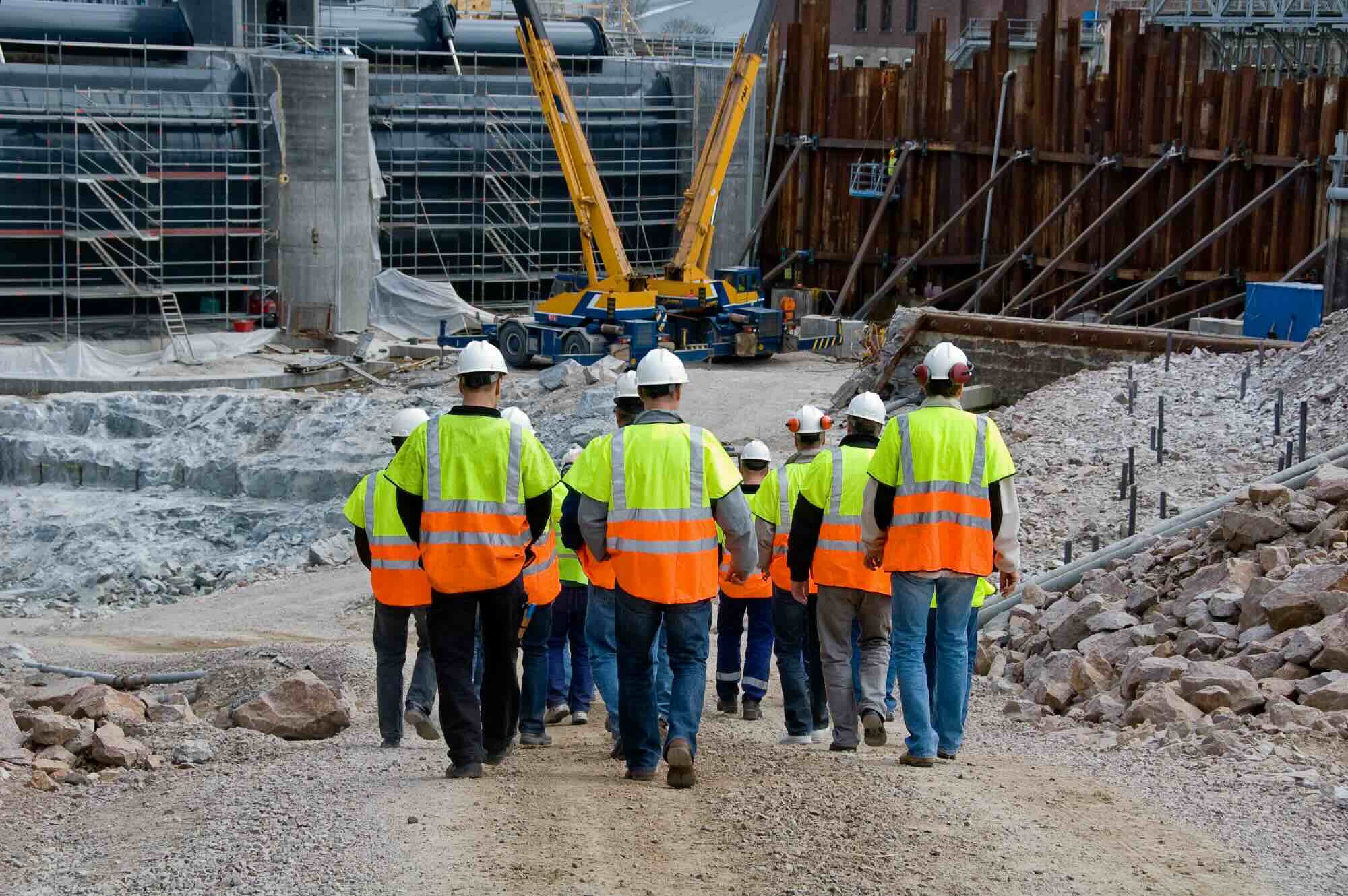
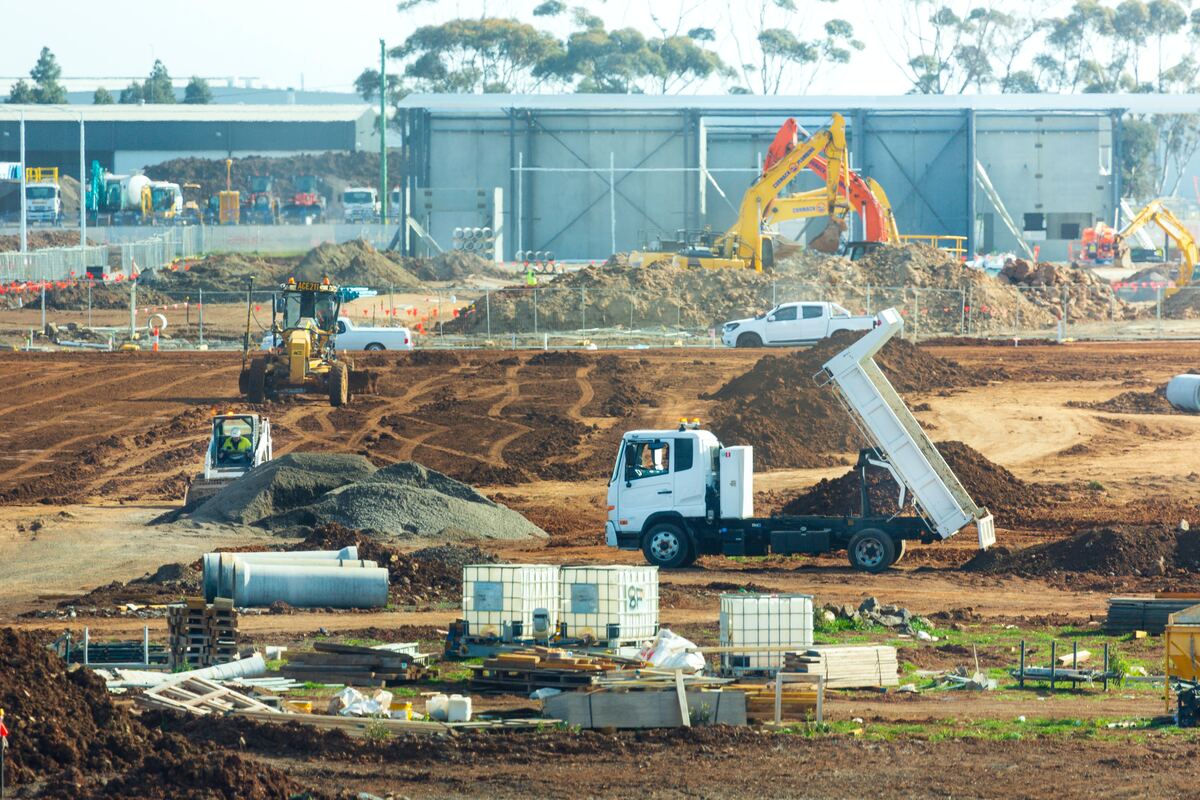
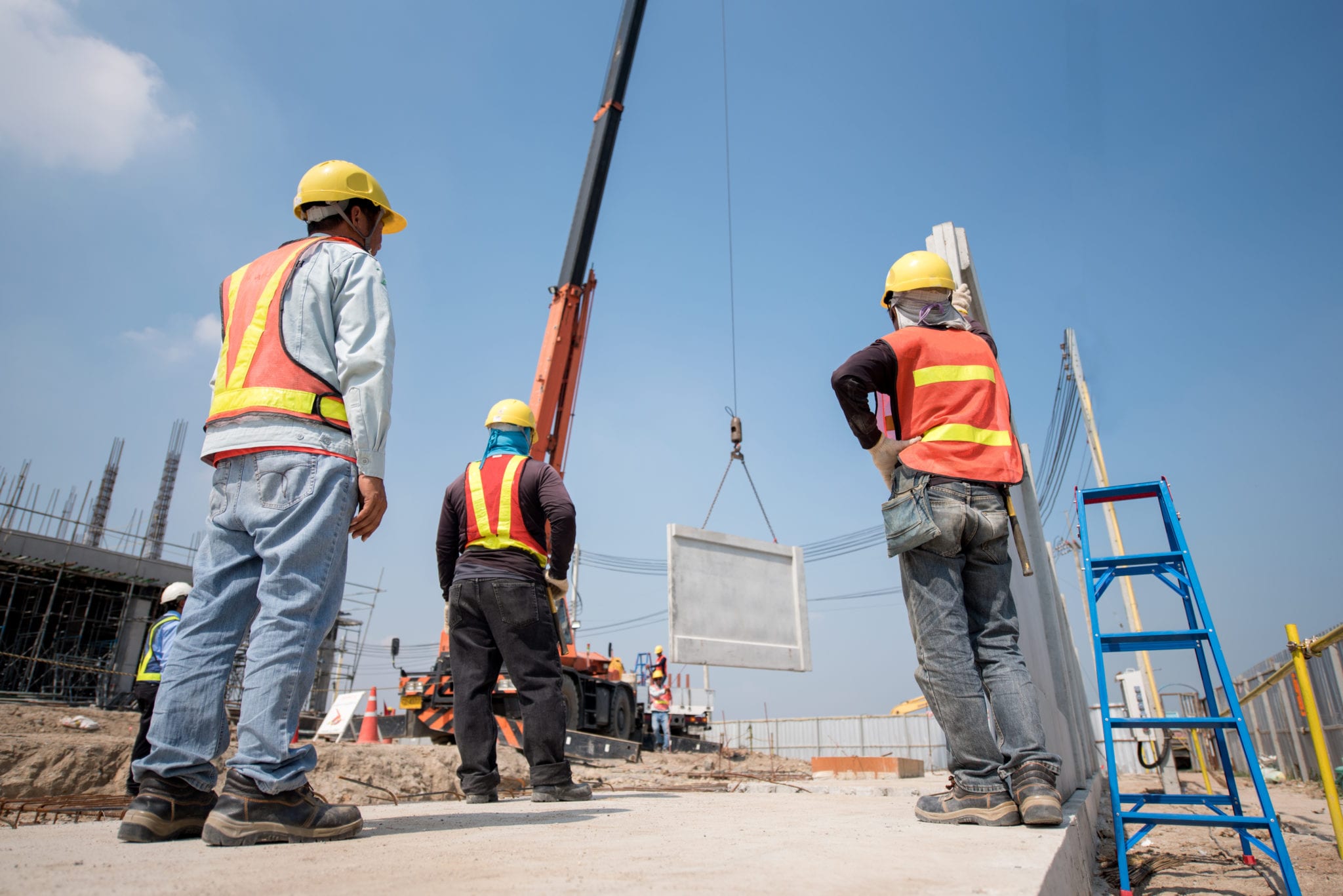
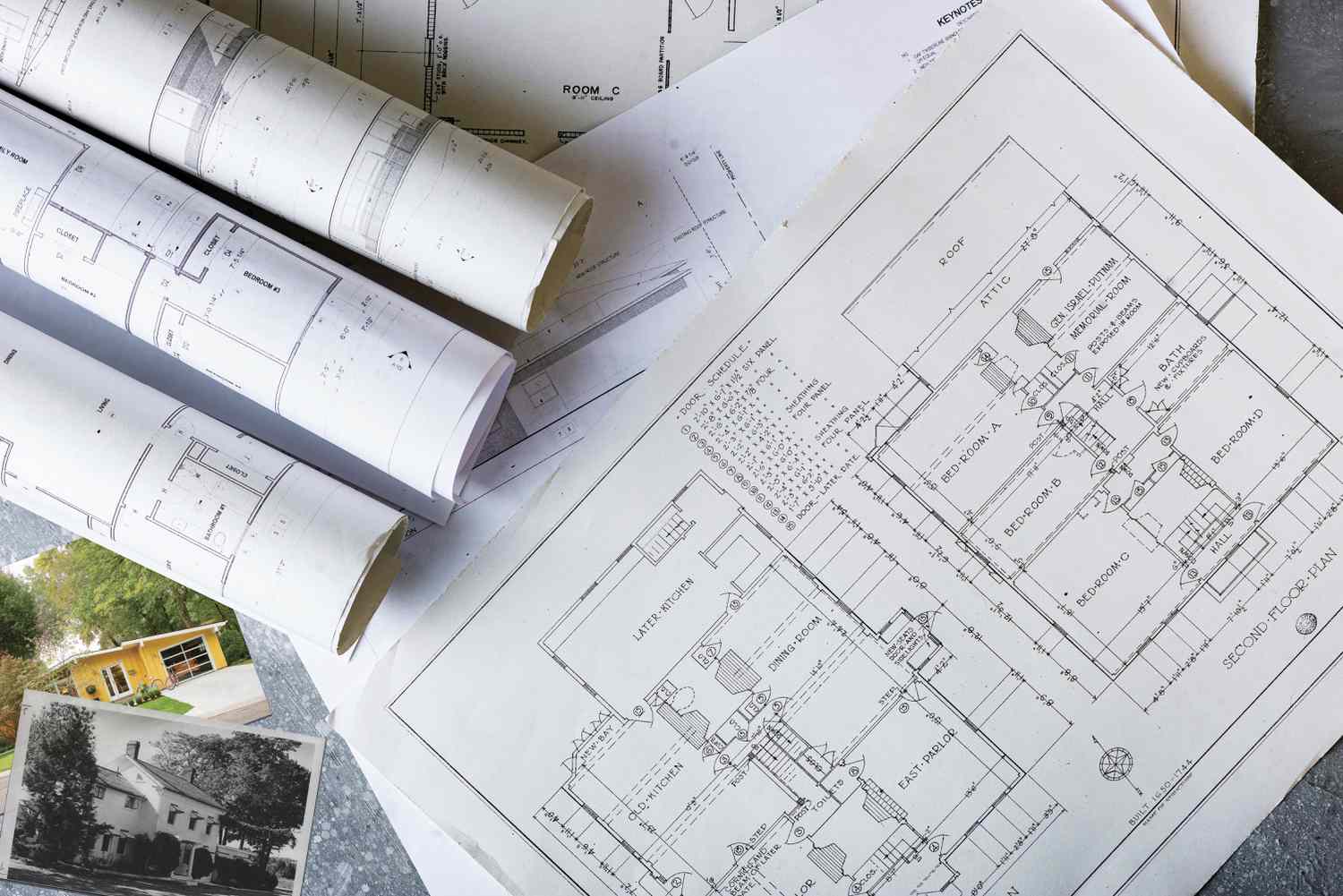


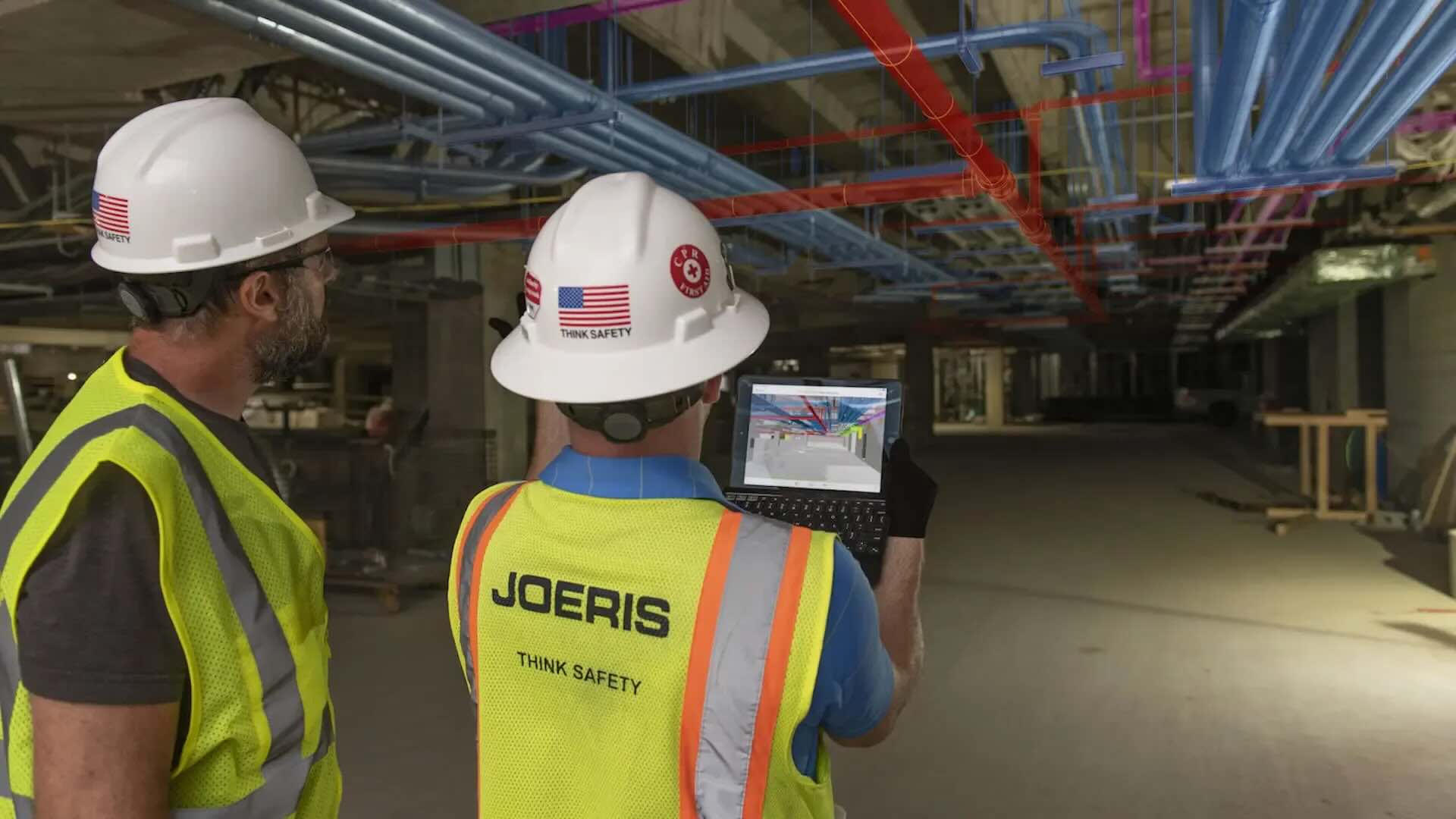
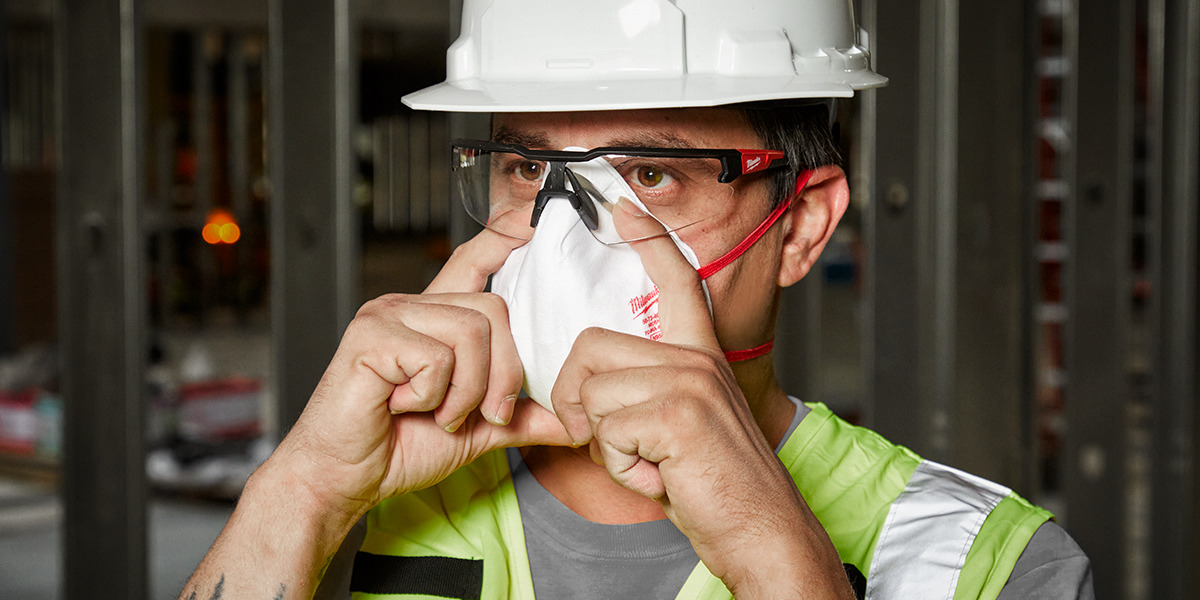


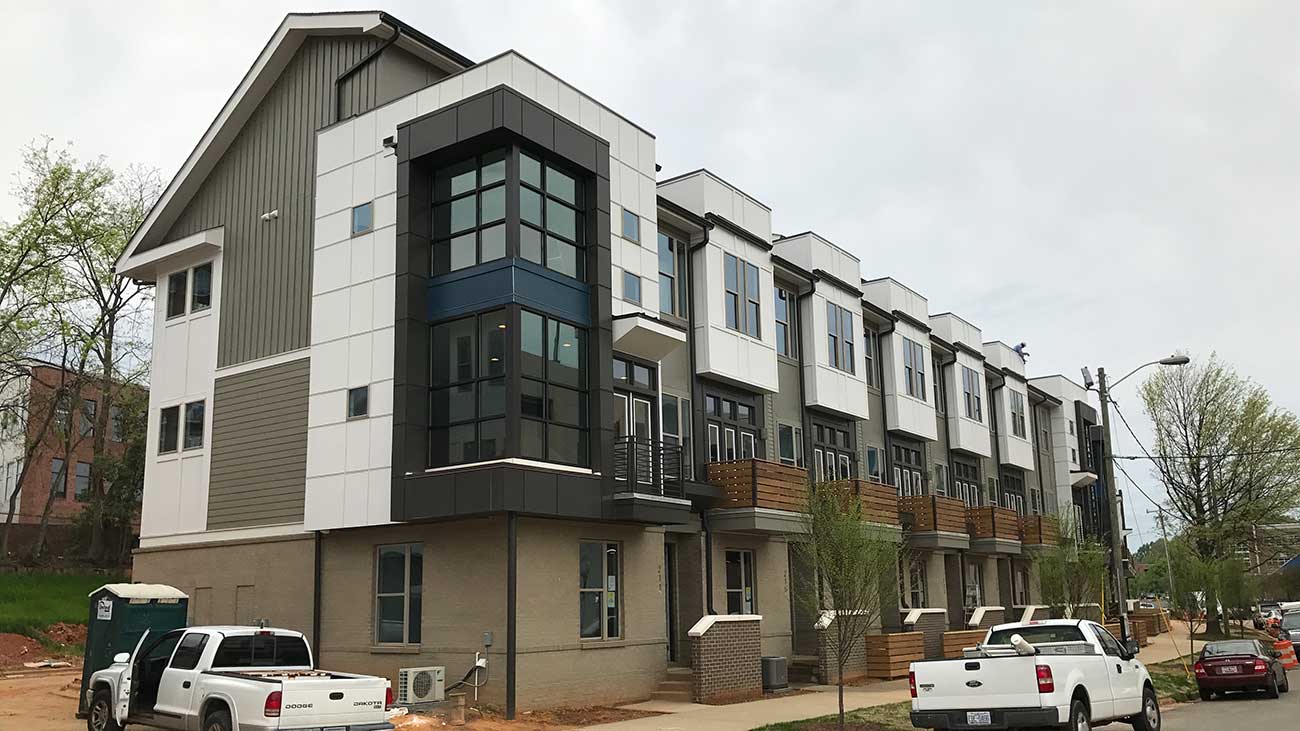



0 thoughts on “How To Be A Construction Site Supervisor”